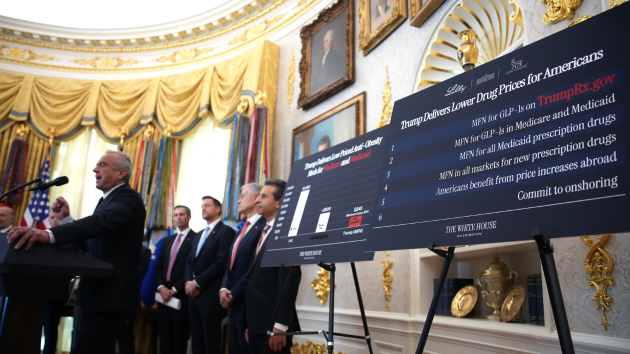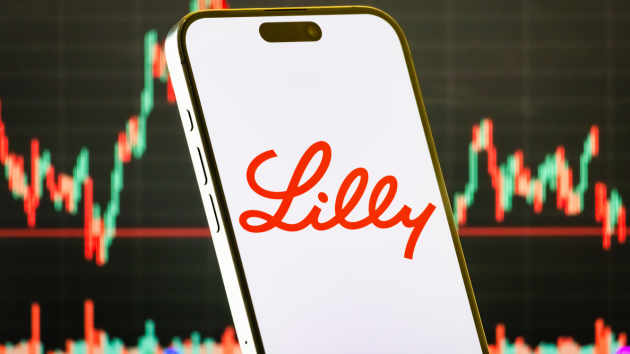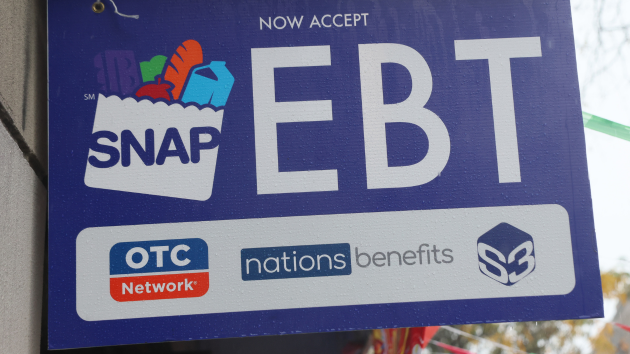Biden relaunches cancer ‘moonshot’ initiative to help cut death rate
Written by luck on February 2, 2022

(WASHINGTON) — President Joe Biden on Wednesday relaunched the federal government’s cancer “moonshot” initiative, with the goal of cutting the death rate from cancer in half over the next quarter-century.
“We can end cancer as we know it,” Biden said during an event at the White House.
The initiative is personal for Biden, who lost his son Beau to brain cancer in 2015 and who first launched the initiative as vice president.
“I committed to this fight when I was vice president,” Biden said Wednesday. “It’s one of the reasons why quite frankly why I ran for president. Let there be no doubt, now that I am president, this is a presidential, White House priority. Period.”
After the Obama presidency, Biden and wife — and now first lady — Jill Biden founded a nonprofit foundation dedicated to finding a cure for cancer.
In 2016, Congress authorized $1.8 billion in funding for the government’s moonshot initiative over seven years. There’s $410 million left for the next two fiscal years.
In addition to cutting today’s age-adjusted death rate from cancer by at least 50% over the next 25 years — after it has fallen by about 25% over the past 20 years — the initiative will aim to “improve the experience of people and their families living with and surviving cancer,” the White House said.
“It’s bold,” Biden said. “It’s ambitious. But it’s completely doable. Just as we harnessed the size to develop cutting edge COVID-19 vaccines and treatments, we’ll bring a fierce sense of urgency to the fight against cancer.”
On Wednesday, Biden said he was “announcing a call to action for cancer screening and early detection.”
More than 9.5 million cancer screenings were missed in the U.S. because of the COVID-19 pandemic, the White House said.
“We have to get cancer screenings back on track,” Biden said. “And make sure they’re accessible to all Americans.”
But the pandemic has also led Biden to set “very ambitious goals,” a senior Biden administration official told reporters Tuesday.
“The scientific advances that we saw from the COVID-19 pandemic, from the response to it, also points to things that are possible today,” the official said.
One example, according to the White House, is that the relaunched initiative will aim to “study and evaluate multi-cancer detection tests, like we did for COVID-19.”
The cancer “moonshot” initiative will have a coordinator in the White House, and the White House will form a “cancer cabinet” of officials from across the federal government. The initiative will involve the private sector, foundations, academic institutions and others, too.
Other goals, according to the White House, include increasing equitable access to screening and prevention — with at-home screening, mobile screening, and community health networks, as well as “accelerating efforts to nearly eliminate cervical cancer through screening and HPV vaccination, with a particular focus on reaching people who are most at risk.”
There will be a White House cancer “moonshot” summit, as well as a White House roundtable conversation series, they said.
The president also called on Congress to approve funding for a research project he has proposed to be housed at the National Institutes of Health, called “Advanced Research Projects Agency for Health (ARPA-H),” which would try to develop breakthroughs for several diseases.
Biden was joined Wednesday in the White House’s East Room by about 100 members of the cancer community, including patients, survivors, researchers, advocates, caregivers, members of Congress and others, according to senior Biden administration officials.
During his remarks, the president drew on his own family’s experience navigating a cancer diagnosis, articulating many of the challenges people around the country face after hearing they have cancer.
“Despite all the progress,” Biden said, “there’s still a sense of powerlessness, guilt that maybe you’re not doing enough because you don’t know enough.”
The first lady and Vice President Kamala Harris. whose mother was a breast cancer researcher, also spoke.
ABC News’ Molly Nagle contributed reporting.
Copyright © 2022, ABC Audio. All rights reserved.





